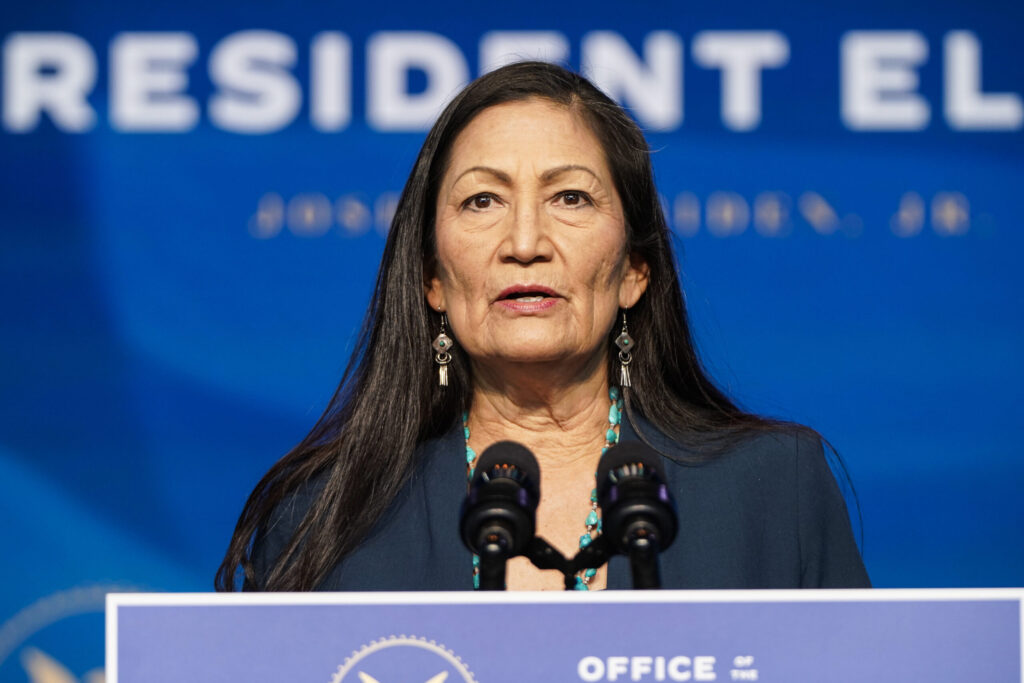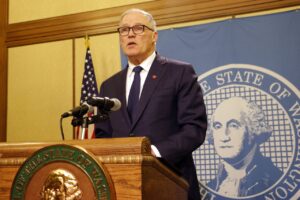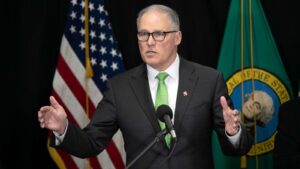Washington residents weigh in on plan to purge ‘squaw’ place names
4 min read
The public got a chance to join the conversation during a special virtual meeting of the Washington State Committee on Geographic Names’ (COGN) plan to rename 18 geographical features including the name “squaw.”
The renaming is part of a nationwide effort to rid federal lands of a term the U.S. government has deemed a racial slur for Native Americans.
In November, Deb Haaland, secretary of the U.S. Department of the Interior (DOI), signed two orders creating administrative bodies to review and replace derogatory geographic feature names across the country.
In February, the DOI announced a list of candidate replacement names for more than 660 geographic features across the nation with the name “squaw” and an opportunity for public comment to recommend and review proposed replacement names. The 60-day comment period began Feb. 23.
Mark Bozanich, a research cartographer for the Washington State Department of Transportation, noted there is sometimes a lack of standardization on geographic names between the federal government and state and local governments. That “presents issues for making maps,” he said at Thursday’s meeting.
Zoltán Grossman, a professor of geography and native studies at The Evergreen State College in Olympia, was adamant Native American tribes are included in the renaming process.
“As there are an unprecedented number of name changes on your docket, I trust that you’re consulting with tribes on the possible pathways to change the names that have been so denigrating to indigenous women,” he said.
It’s the right thing to do, according to Grossman
“Given the harm that has been done to native women through the derogatory place names, it’s only proper that the tribes be respected and consulted on a government to government basis,” he explained.
By Grossman’s estimation, Washington is duty-bound to include Native Americans in the renaming process.
“While other states may follow a name change process in consultation solely with the public and federal government, Washington state agencies have an obligation to consult tribal governments,” he said. “As the tribes have been the most affected by the 18 names, I hope and trust you prioritize their input in the renaming process.”
COGN Chair Sara Palmer said that was the case, noting “we have been talking quite a bit this year and the last year about expanding tribal consultation, and we have been working toward that and have been sending notifications on all of this to…Washington state tribes.”
David Morgan, property owner on the lower Columbia river, called in about nearby Squaw Island, one of the 18 sites in the state slated for renaming.
“The island that had been named that has disappeared over time,” he said, speculating that could mean it may no longer be reflected on future maps.
Living up to the island’s characterization as hard to find, Palmer said COGN staff had previously been to the location but that it didn’t match Morgan’s description. She said she would look into the matter further to make sure they weren’t talking about two different locations.
A COGN letter to the DOI supporting the federal government’s goal, while acknowledging the federal process the state is working within and the challenges that presents, was discussed before unanimous approval of transmitting it to the federal government.
“I really liked the letter,” committee member Grant Smith said. “And I liked the wording, particularly the use of the term ‘derogatory’ rather than the term ‘offensive.’ I think we have to be very precise that derogatory names are names used to demean someone as a representative of an ethnic group, whereas the adjective ‘offensive’ can apply to any name.”
Committee member Dean Foster agreed.
“I also liked the letter a lot,” he said. “I think it’s important, however, that we make sure everybody understands that this is a two-part process.”
That two-part process involves first getting rid of derogatory names, then going through the slower, more methodical approach of renaming locations.
Committee member Putnam Barber elaborated on that.
“I would like to be very direct in informing the Washington state public that we are accepting the Department of Interior’s hasty process, expecting that many of these names will again be changed in the relatively near future,” he said.
Palmer said the committee is relying on the public’s suggestions in terms of new names.
“We want to commemorate indigenous women on the landscape,” she said. “That’s really important to all of us. We’re all very committed to that.”
This article was originally posted on Washington residents weigh in on plan to purge ‘squaw’ place names






